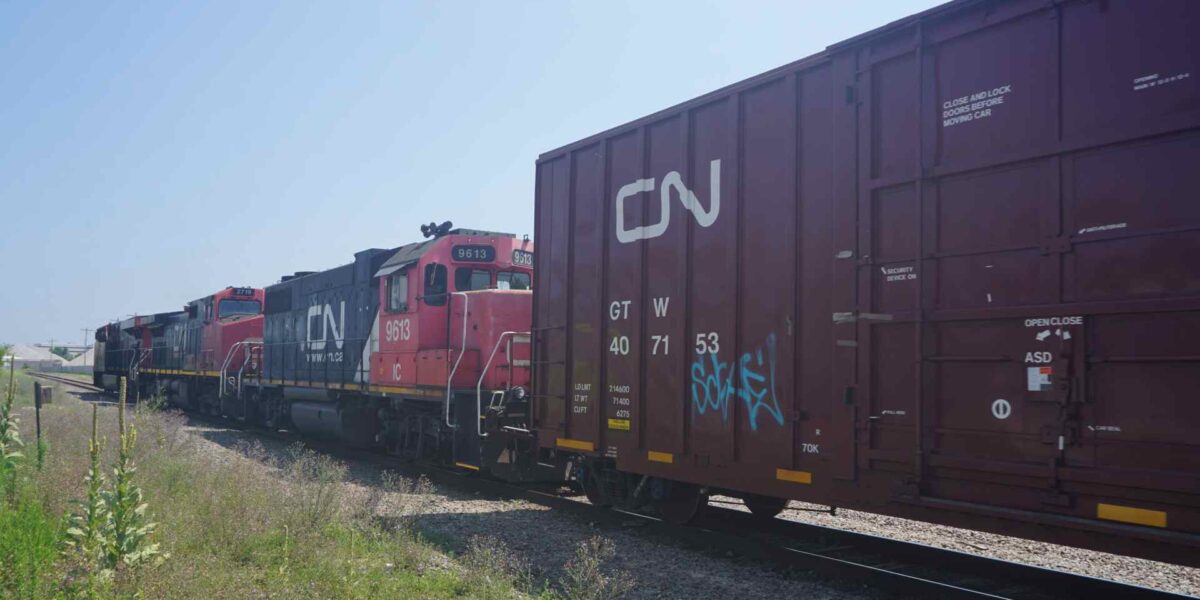UPDATE 2024/22/08 6:47PM Eastern: The federal government has forced both parties into binding arbitration to resolve the issue and have ordered the work stoppage to end immediately. Canadian Labour Congress president Bea Bruske said the move undermined workers’ right to bargain with their employer.
Negotiations between the Teamsters Canada Rail Conference, the Canadian National Railway Co. (CN) and Canadian Pacific Kansas City Ltd. (CPKC) pressed on for months without a resolution. Bargaining continued into the night on Wednesday but parties were unable to reach an agreement before the lockout deadline at midnight on Thursday.
More than 9,000 engineers, conductors and yard workers are now unable to work, which puts supply chains at risk and disrupts commutes for thousands who had rides run on CPKC-owned railways.
The teamsters have been fighting for safety provisions regarding fatigue and for CN workers to be able to stay with their families. According to the union’s website, CPKC wants to gut fatigue provisions which would mean crews have to stay awake longer, increasing the risk of derailments and other accidents.
CN is also targeting fatigue provisions. As well, it wants to implement a forced relocation scheme, which would see workers ordered to move across the country for months at a time to fill labour shortages.
The Transportation Safety Board has put fatigue on its watch list since 2016. Crews often work long and irregular schedules which can make it difficult to get restorative sleep, according to the safety board’s website. The board wrote it is concerned about how fatigue can affect the performance of crews and therefore the safety of operations.
“Throughout this process, CN and CPKC have shown themselves willing to compromise rail safety and tear families apart to earn an extra buck. The railroads don’t care about farmers, small businesses, supply chains, or their own employees. Their sole focus is boosting their bottom line, even if it means jeopardizing the entire economy,” said Paul Boucher, President, Teamsters Canada Rail Conference.
In a press release on Sunday, CN wrote they have made multiple proposals which focused on better wages, work-life balance, job security, improved safety and predictable days off. All their offers were rejected.
CPKC said on their website that they will focus on reaching a “status quo-style contract renewal.”
“The status quo-style offer fully complies with new regulatory requirements for rest and does not in any way compromise safety,” CPKC wrote on their website.
Other unions have begun expressing their solidarity with the Teamsters. Lana Payne, president of private sector union Unifor, wrote in a release that the lock out and its impacts on Canadians could have been avoided.
“CN and CPKC have provoked a crisis as a means to reshape labour relations to their advantage, clinging to a 1950s approach that has no place in this country today,” Payne wrote. “Their tactics reveal a blatant disregard for the collective agreements that should guide their interactions with workers.”
Bea Bruske, president of the Canadian Labour Congress, also released a video showing her support for locked-out workers.
“We will not, we cannot ever expect employees to move off the issue of safety,” Bruske said in the video. “Every single worker in this country has the right to come home from work in the same condition that they left for work in.”



